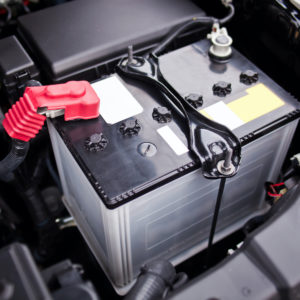The dreaded check engine light (CEL) is always worrisome whenever it turns on. But when the light illuminates (or starts to flash) and your car begins to shake, that makes the situation even more stressful. Naturally, you’ll want to find out what’s causing the problem and how to address it. There are literally dozens of reasons misfires can happen, so we’ll just hit the highlights.
What Causes the Check Engine Light to Flash and Make the Car Shake While I’m Driving?
Usually, when the check engine light is flashing and the car is sputtering and shaking, that means you’re dealing with an engine misfire serious enough to possibly damage the catalytic converter and in most cases the PCM/ECM will kill the injector to prevent that. Basically, the check engine light comes on whenever there’s an issue that could increase vehicle tailpipe emissions.
An engine misfire—a problem that almost always causes an increase in hydrocarbon emissions —is one of the many reasons why the check engine light might illuminate (or start to flash). A misfire occurs when there’s incomplete (or zero) combustion taking place inside one of the engine’s cylinders.
When one cylinder isn’t providing turning power to the crankshaft when it’s time for that cylinder to fire, the crankshaft will slow down during that cylinder’s lack of a power event. When a misfire is severe enough, you may notice that the engine begins to shake.

On a V8, you may simply notice a loss of power and a flashing check engine light.
On a four cylinder it may feel like your steering wheel is attached to a machine gun. Misfires can happen intermittently, at idle only, accelerating only, or under heavy load (in 4th gear at 45 mph). They can be random or regular. Misfires can happen on just one cylinder or on several different cylinders at the same time. They can happen right after the engine is started and then clear up due to coolant seeping into a single cylinder.
And there are several reasons why misfires can happen.
It’s important to point out that an engine needs three primary ingredients to run properly: a precise air-fuel mixture, adequate spark, and good compression. When any of these factors are missing, incomplete combustion occurs, resulting in a misfire.

There are many potential causes for a misfire, some of the most common of which include:
- Ignition system problems (example: a bad coil pack or spark plug issues)
- Air-fuel mixture issues (example: a vacuum leak near one intake port or faulty/clogged fuel injectors)
- Engine mechanical problems (example: a failed lifter or motor mount, compression loss due to valve problems, or jumped timing chain)
- Sensor issues (example: a bad mass airflow sensor or crankshaft sensor)
- Wiring problems (example: a broken wire or loose connector)
- Emissions equipment issues won’t ordinarily cause misfires but can cause overall poor idle quality or power loss (example: a bad exhaust gas recirculation valve or secondary air injection system failure, or a faulty catalytic converter)
- Computer problems (example: software in need of an update or faulty hardware)
Spark plugs that are gapped too close or partially fouled may cause a random misfire that only happens at idle. This kind of misfire can be felt best at the exhaust pipe with a rag. The exhaust will “puff” with each misfire.
–Richard McCuistian, ASE Certified Master Automobile Technician
In other words: There is an almost endless list of reasons why your engine might be misfiring, causing the check engine light to turn on and the car to shake.
FAQ
You should not continue to drive when the car is shaking and the check engine light is on. Such a scenario often indicates that your car is suffering from a severe misfire, which could damage the catalytic converter and other costly components.
There are multiple reasons why your engine might be misfiring badly enough to cause a check engine light and shaking. Therefore, there isn’t a magic bullet fix for the issue. The solution for a Kia Optima shaking when idle might be different from a Prius engine shaking while starting. If your car started shaking or your car is shaking when starting up, you (or your mechanic) will need to diagnose the problem, then perform the necessary repairs.

Where to Get Replacement Parts for Your Ride
Because there are many potential causes for engine misfires, fixing the issue can prove challenging. Good thing you can find exactly what you need here at CarParts.com without any hassle.
We have an extensive selection of replacement parts, ensuring a quick and convenient solution to get you back on the road. Eliminate the need to visit multiple physical stores in search of replacement parts. Our catalog covers everything from ignition system components to emissions equipment parts.
Simply search for the part you need, use the vehicle selector to view compatible parts, and change the filters to your needs. It’s that easy. Our products come with a low price guarantee, so you won’t have to break the bank to repair your ride.
We also guarantee quality. Not only do we source our parts from top brands but all our products are also stringently tested during manufacturing to ensure they comply with industry standards.
Don’t let faulty components ruin your trip. Check out the replacement parts you need and order today!
Any information provided on this Website is for informational purposes only and is not intended to replace consultation with a professional mechanic. The accuracy and timeliness of the information may change from the time of publication.






















